 | TODAY IN SCIENCE HISTORY NEWSLETTER - 27 JANUARY |
| Feature for Today |
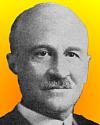 On 27 Jan 1940, David Murray Cowie died, an American pediatrician who promoted the iodization of table salt sold in the U.S. to provide a dietary supplement of iodine, thus reducing the widespread incidence of goitre (major swelling of the thyroid gland in the neck). As a professor of pediatrics at the University of Michigan gathered support from the Michigan State Medical Society and pursuaded several table salt producers to add 0.01% sodium iodide to their product. On 1 May 1924, the first iodized salt was on Michigan grocers' shelves. An article on Goitre Prevention from Minnesota Medicine (1922) (1922) indicates that the medical community regarded this as an important step in public health. And that is why the salt on your supermarket shelf says “Iodized,” even if you had no idea of the reason why, its importance and its history. On 27 Jan 1940, David Murray Cowie died, an American pediatrician who promoted the iodization of table salt sold in the U.S. to provide a dietary supplement of iodine, thus reducing the widespread incidence of goitre (major swelling of the thyroid gland in the neck). As a professor of pediatrics at the University of Michigan gathered support from the Michigan State Medical Society and pursuaded several table salt producers to add 0.01% sodium iodide to their product. On 1 May 1924, the first iodized salt was on Michigan grocers' shelves. An article on Goitre Prevention from Minnesota Medicine (1922) (1922) indicates that the medical community regarded this as an important step in public health. And that is why the salt on your supermarket shelf says “Iodized,” even if you had no idea of the reason why, its importance and its history. |
| Book of the Day | ||
|
| Quotations for Today | |
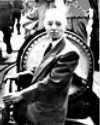 | It troubles me that we are so easily pressured by purveyors of technology into permitting so-called “progress” to alter our lives without attempting to control it�as if technology were an irrepressible force of nature to which we must meekly submit. |
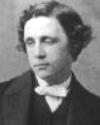 | “Of course they answer to their names?” the Gnat remarked carelessly. “I never knew then to do it,” [said Alice.] “What's the use of them having names,” said the Gnat, “if they won't answer to them?” “No use to them,” said Alice; “but it's useful to the people that name them, I suppose.” |
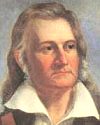 | A true conservationist is a man who knows that the world is not given by his fathers, but borrowed from his children. |
| Quiz | |
| Before you look at today's web page, see if you can answer some of these questions about the events that happened on this day. Some of the names are very familiar. Others will likely stump you. Tickle your curiosity with these questions, then check your answers on today's web page. | |
| Births | |
 | On 27 Jan 1900, Admiral Hyman G. Rickover was born. He served on active duty with the United States Navy for more than 63 years. Rickover is known as the “Father of the Nuclear Navy” for under his leadership, an atomic-powered submarine was built (1954).  What was this first nuclear submarine named? What was this first nuclear submarine named? |
 | An Oxford mathematician was born on 27 Jan 1832, who is remembered as a novelist who wrote two popular children's stories under the pen name Lewis Carroll. What is this mathematician's real name? What is this mathematician's real name? |
| Deaths | |
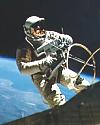 | Edward H. White (1930-1967) was an American astronaut who in 1967 was one of the first casualties of the U.S. space program, killed during a flight simulation. Previously, he had made an orbital flight in Gemini 4, launched on 3 Jun 1965, and made an important “first” in the history of U.S. space flight. What was White's historic “first” as a U.S. astronaut? What was White's historic “first” as a U.S. astronaut? |
 | John James Audubon (1785-1851) was an artist, and naturalist known for his drawings and paintings. In 1820, he made his goal the publication of an anthology of life drawings. He travelled the Ohio and Mississippi Rivers and the Great Lakes. Audubon is remembered for which type of wild life in his drawings? Audubon is remembered for which type of wild life in his drawings? |
| Events | |
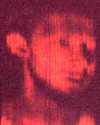 | On 27 Jan of a certain year, John Logie Baird, a Scottish inventor, gave the first public demonstration of a true television system in London, launching a revolution in communication and entertainment.  In which decade did Baird make this demonstration? In which decade did Baird make this demonstration? |
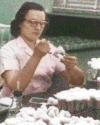 | On 27 Jan 1950, Science magazine announced the new antibiotic terramyacin. It was found effective against pneumonia, dysentery, and other infections. It was developed from 20 million tests for bacteria-fighting organisms found in 135,000 samples collected worldwide.  In what material was these bacteria-fighting organisms found? In what material was these bacteria-fighting organisms found? |
| Answers |
| When you have your answers ready to all the questions above, you'll find all the information to check them, and more, on the January 27 web page of Today in Science History. Or, try this link first for just the brief answers. Fast answers for the previous newsletter for January 26: symbiosis • from the initial of Keys's name • smallpox • Nature • decade including the year 1932 • Isaac Newton. |
| Feedback |
 If you enjoy this newsletter, the website, or wish to offer encouragement or ideas, please send feedback by using your mail reader Reply button. If you enjoy this newsletter, the website, or wish to offer encouragement or ideas, please send feedback by using your mail reader Reply button. Your click on a StumbleUpon, Google+ or Facebook social button on the site webpages is also a welcome sign of appreciation. Thank you for using them. |
| Copyright |
| To find citations for quotations go to the corresponding webpage by clicking on the “quotes” balloon icon. Sources for the thumbnails appear on today's webpage with the corresponding item. � This newsletter is copyright 2014 by todayinsci.com. Please respect the Webmaster's wishes and do not put copies online of the Newsletter � or any Today in Science History webpage. (If you already have done so, please remove them. Thank you.) Offline use in education is encouraged such as a printout on a bulletin board, or projected for classroom viewing. Online, descriptive links to our pages are welcomed, as these will provide a reader with the most recent revisions, additions and/or corrections of a webpage. For any other copyright questions, please contact the Webmaster by using your mail reader Reply button. |
--
If you do not want to receive any more newsletters, Unsubscribe
To update your preferences and to unsubscribe visit this link


Δεν υπάρχουν σχόλια:
Δημοσίευση σχολίου